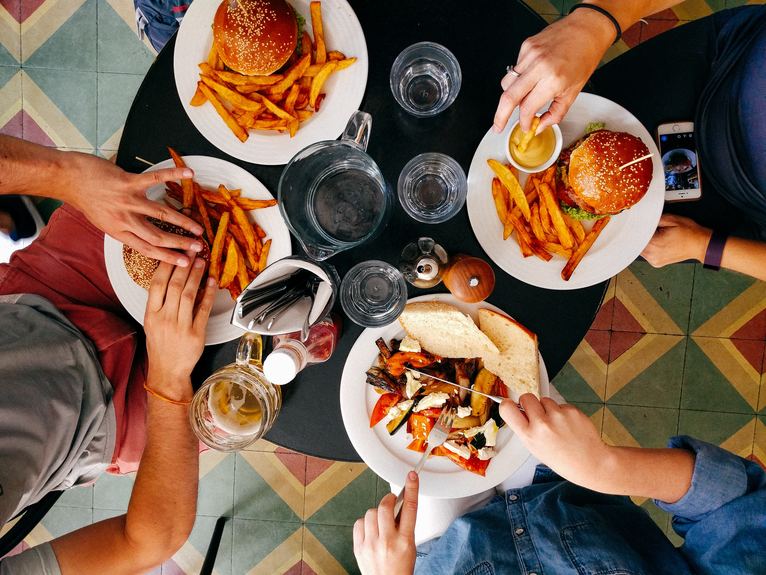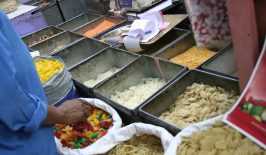A young team of Canadian ecopreneurs wants to tackle food waste by turning restaurant scraps into value-added products, starting with bioplastics.
Food waste is an ever-growing environmental problem, with leftover food that ends up in landfill producing methane gas, a greenhouse gas even more potent than carbon dioxide. There are several initiatives already out there that aim is stop edible food ending up in the trash in the first place, such as the SirPlus saved-food supermarket in Berlin or the app MealSaver, and others that are trying to give a second life to food waste – such as Toast, the brewery making craft beer from leftovers.
But as well as an environmental one, organic waste has a very “real” monetary cost too, with individuals and commercial food establishments such as cafes and restaurants paying high fees to get their waste taken care of. That’s where another recent addition to the food-waste-tackling-arsenal comes in, Genecis, a Canadian company whose aim is to convert food scraps into value-added products – for the same price (or in the future, as their system becomes more advanced, maybe even less) than a restaurant would pay for normal organic waste disposal.
Set up in Toronto by a team of young ecopreneurs from different acadamic backgrounds, their website announces their vision of a future “where organics will not be seen as waste, but rather as a valuable resource that gives rise to important products, including bioplastics, biofuels, and even pharmaceutical drugs.”
“We turn restaurant food waste into bioplastics,” said Luna Yu, founder and CEO of Genecis to the University of Toronto news. “We make money from both the collection fees we charge to the restaurants and from the bioplastics and compost we produce from them.”
Currently, the company is still in the starting phase of operations, and has so far managed to convert food scraps into bioplastics based on PHAs. Without the kitchens having to make any changes to their normal operations, Genecis collects the restaurant’s food waste and take it to its laboratories to transform it, using microorganisms, into bioplastics. These bioplastics can then be used for producing different items such as packaging, biodegradable bottles, 3D printing filament or even in medical and surgical applications.
Genecis is currently working on testing their process with a 1,000-litre pilot bioreactor to be able to see if what the company has tested in the lab can also be carried out on a large scale. Once the machine is completed, it would be able to offset 243 tonnes of CO2 each year. As Yu explained to the University of Toronto Engineering News. “Standard passenger vehicles release 4.7 tonnes of CO2 every year, which means a restaurant can offset the emissions of 51.7 cars just by using one of our machines.”
The team believe that by charging the same, or lower collection fees than typical waste disposal companies, they will encourage restaurants to join them. And another draw is the tracking service that they offer, which will allow their restaurant partners to see in real-time, their contributions to reducing greenhouse gas emissions and diverting waste.
Sure, technologies that help reduce food waste – such as the Feeding India meal-distribution project and Nigeria’s solar-powered fridges for off grid food storage – help tackle the issue before it becomes a problem, but Genecis seems to have come up with a practical, scalable and commercially-viable solution for all that food waste that will still inevitably happen.






